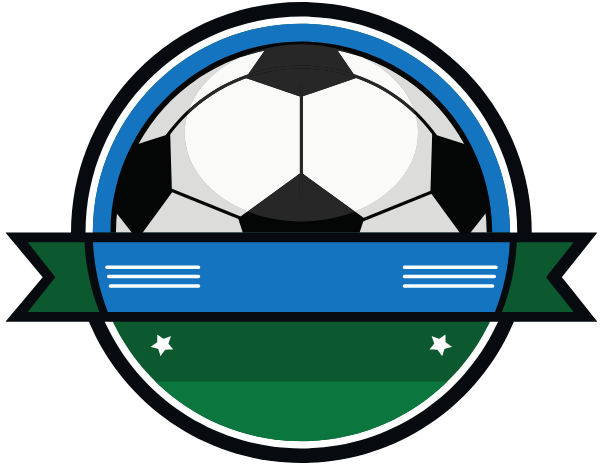General Rules of Hardball Squash
Ready to master hardball squash? Equip yourself with proper footwear and protective eyewear for stability and safety. Understand court dimensions and markings to strategize your moves. Serve with variety, hitting the side wall first for the best angles. Focus on consistent scoring and adapt your game based on the points. Handle interference gracefully with let calls, respecting the referee's decisions. These key rules lay the foundation for a thrilling squash game!
Equipment Requirements
When gearing up for hardball squash, you'll need to make sure you have the right equipment to enhance your game. Two essential pieces of equipment to focus on are proper footwear and protective eyewear. Let's start from the ground up – proper footwear is vital for maintaining stability, preventing slips, and supporting quick movements on the court. Opt for indoor court shoes with good traction to make certain you can move swiftly and change direction with ease.
Protective eyewear is non-negotiable in hardball squash. The fast-paced nature of the game makes the risk of eye injuries significant, especially with the speed the ball can reach. Investing in quality protective eyewear not only safeguards your eyes but also boosts your confidence during intense rallies. Look for goggles specifically designed for squash that offer a comfortable fit and excellent visibility.
Court Dimensions and Markings
To excel in hardball squash, understanding the court dimensions and markings is essential for strategic gameplay and positioning. The court for hardball squash is typically 32 feet long, 21 feet wide, and 15 feet high. Here are some essential points about court dimensions and markings:
- Player Movement: The court's size influences how players move during a match. The limited space requires quick footwork and efficient positioning to reach the ball effectively.
- Shot Selection: The court markings, including the service boxes and the tin, dictate where players can hit the ball. Understanding these markings is critical for players to make strategic shot selections and control the pace of the game.
- Visibility: The contrast between the front wall, the floor, and the outlines on the court helps players anticipate the ball's trajectory. This visibility is vital for reacting promptly to shots.
- Strategic Positioning: The markings on the court help players identify the best positions during rallies. Utilizing these markings can aid in creating advantageous angles for shots and controlling the flow of the game effectively.
Serving Rules and Positions
Understanding the court dimensions and markings sets the foundation for mastering serving rules and positions in hardball squash. When it comes to serving, techniques and positioning play an important role in gaining an advantage over your opponent. Proper strategy and footwork are vital components to guarantee a successful serve.
Here's a quick reference table to highlight key serving rules and positions:
| Serving Techniques | Positioning |
|---|---|
| 1. Use a variety of serves to keep your opponent guessing. | 1. Stand with one foot in the service box. |
| 2. Aim to hit the side wall first on your serve for better angles. | 2. Keep your body sideways to the front wall. |
| 3. Practice serving deep and short serves to mix up the game. | 3. Be ready to move quickly after your serve for the next shot. |
Scoring System and Winning Points
Understanding the scoring system in hardball squash can be both intricate and strategic, influencing the dynamics of each game played. Here's a breakdown to help you navigate the scoring system effectively:
- Scoring Strategies: To excel at hardball squash, focus on consistent scoring rather than solely aiming for winning shots. By strategically placing the ball in hard-to-reach areas, you can force your opponent into making errors, leading to more points in your favor.
- Common Mistakes: One of the most common errors players make is underestimating the importance of keeping a close eye on the score. Losing track of the score can disrupt your momentum and lead to missed opportunities to capitalize on pivotal points.
- Stay Alert: Always be aware of the score and plan your strategy accordingly. This will help you stay focused and adjust your gameplay as needed to secure victory.
- Maintain Pressure: Consistently applying pressure on your opponent by scoring points through well-thought-out strategies can increase your chances of winning. Remember, every point matters in hardball squash.
Interference and Let Calls
Understanding the dynamics of hardball squash involves comprehending how interference and let calls can impact the flow of the game. In squash, player conduct is pivotal to maintaining fair play and sportsmanship on the court. Interference occurs when a player's movement obstructs their opponent's ability to play the ball, leading to a let call by the referee. This decision safeguards that both players have an equal opportunity to make their shots without interference.
Referee decisions regarding let calls are based on various factors, including the severity of the interference and the player's positioning during the game. It is essential for players to respect the referee's judgment and accept their decisions gracefully, promoting good sportsmanship during the match. While disagreements may arise, maintaining a positive attitude and adhering to the rules enhances the overall experience for both players.
Ultimately, understanding the importance of fair play and respecting referee decisions regarding interference and let calls is fundamental to enjoying a competitive and respectful game of hardball squash.
Frequently Asked Questions
What Are Some Common Strategies for Winning a Hardball Squash Match?
To dominate a hardball squash match, master shot selection and positioning. Anticipate your opponent's moves with solid defensive strategies while executing offensive tactics. Your success lies in strategic gameplay and adaptability on the court.
How Can Players Improve Their Endurance and Agility for Squash?
To boost your squash game, focus on endurance training like running or cycling. Incorporate agility drills for sharper movements. Conditioning exercises and speed workouts will enhance your stamina and quickness on the court.
Are There Any Specific Drills or Exercises That Can Help Players Improve Their Squash Game?
To enhance your squash skills, focus on footwork drills for fluidity and conditioning exercises for endurance. Improving shot accuracy and reducing recovery time are essential. Engage in these practices consistently for peak performance on the court.
How Important Is Mental Toughness in Squash and How Can Players Work on This Aspect of Their Game?
To excel in squash, mental toughness is crucial. Visualize success, train focus, practice breathing techniques, and use positive affirmations. Strengthening your mind is as essential as honing your physical skills; it sets champions apart.
Are There Any Specific Dietary or Nutritional Recommendations for Squash Players to Perform at Their Best on the Court?
Before hitting the court, fuel up wisely with a balanced pre-game meal rich in carbs and lean proteins. Stay hydrated throughout by sipping water, and consider adding electrolyte-filled drinks for peak performance.






